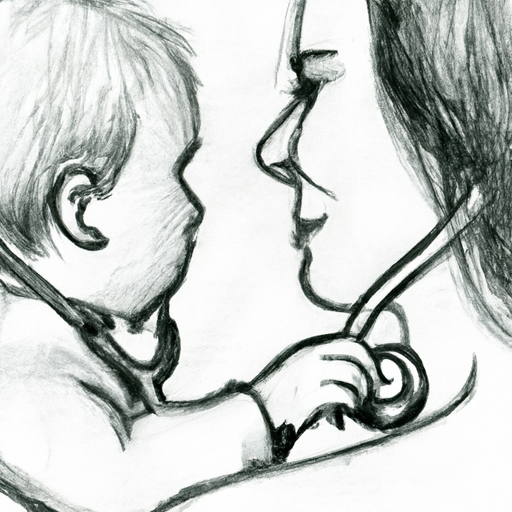When it comes to the health of their little ones, parents are always on high alert. From the moment a baby is born, there is an innate desire to ensure their well-being. However, understanding and navigating the world of baby health can be a daunting task. From deciphering symptoms to determining causes and seeking proper diagnosis, it can feel overwhelming. In this article, we aim to shed light on common baby health issues, their symptoms, causes, and diagnosis. We will also provide expert insights and recommendations on effective treatment options. Additionally, we will discuss preventive measures and essential tips for parents to maintain their baby’s health. By delving into these sections, we hope to empower parents with the knowledge they need to ensure the optimal health of their precious little ones.
1. "Understanding Common Baby Health Issues: Symptoms, Causes, and Diagnosis"
Babies are delicate beings, constantly growing and developing. As they explore their new world, they may encounter various health issues that can cause concern for parents. Understanding common baby health issues, including their symptoms, causes, and diagnosis, can help parents navigate these challenges with confidence and seek appropriate treatment for their little ones.
One of the most common baby health issues is fever. A fever is usually a sign that the body is fighting off an infection. In infants, a rectal temperature of 100.4°F (38°C) or higher is considered a fever. Common causes of fever in babies include viral or bacterial infections, teething, immunizations, or overdressing. Symptoms may include flushed cheeks, fussiness, poor appetite, and difficulty sleeping. To diagnose the cause of a fever, a healthcare provider may conduct a physical examination, ask about other accompanying symptoms, and sometimes perform additional tests like blood work or urine analysis.
Another frequent concern for parents is respiratory infections, such as the common cold or bronchiolitis. These infections often cause symptoms like coughing, sneezing, congestion, and difficulty breathing. Respiratory infections in babies are commonly caused by viruses, which are easily transmitted from person to person. Diagnosis is usually based on the presence of typical symptoms during a physical examination. In severe cases, a healthcare provider may order a chest X-ray or collect a sample from the baby’s upper respiratory tract for laboratory testing.
Gastrointestinal issues
2. "Effective Treatment Options for Baby Health Concerns: Expert Insights and Recommendations"
When it comes to the health of babies, it is essential to have effective treatment options available to address various concerns that may arise. From common illnesses to more serious conditions, parents and caregivers must be equipped with expert insights and recommendations to ensure the well-being of their little ones.
One of the most common health concerns in babies is fever. A rise in body temperature can be an indication of an underlying infection or illness. In such cases, it is crucial to seek medical advice and follow the recommended treatment. Over-the-counter medications such as acetaminophen or ibuprofen, prescribed by healthcare professionals, can help lower the fever and provide relief.
Another prevalent issue among babies is digestive problems. From colic and reflux to constipation, gastrointestinal discomfort can cause distress for both the baby and their caregivers. In these cases, pediatricians often suggest dietary modifications, such as changing formulas or introducing specific foods. Additionally, gentle tummy massages and burping techniques can provide relief and improve digestion.
Respiratory issues like coughs and colds are also common in babies, particularly during the winter months. These conditions can cause discomfort and disrupt sleep patterns. Expert recommendations often include using a humidifier to keep the air moist, nasal saline drops to alleviate congestion, and ensuring proper hydration to thin mucus secretions. It is crucial to seek medical advice for babies under three months old, as their immune systems are still developing.
Skin problems, such as diaper rash or ec
3. "Preventive Measures and Baby Health Maintenance: Essential Tips for Parents"
Preventive Measures and Baby Health Maintenance: Essential Tips for Parents
As parents, we always want what is best for our little ones. Ensuring optimal health for our babies is of utmost importance, and taking preventive measures can play a crucial role in achieving this goal. By being proactive and following essential tips, parents can significantly contribute to their baby’s overall well-being. Here are some preventive measures and baby health maintenance tips that every parent should be aware of:
1. Vaccinations: Vaccinations are vital for protecting babies against various diseases. Following the recommended immunization schedule provided by healthcare professionals is essential. Vaccines safeguard babies from life-threatening illnesses such as measles, polio, whooping cough, and many others. It is crucial to consult with a pediatrician to ensure that your baby receives all the necessary vaccinations at the appropriate times.
2. Hygiene Practices: Maintaining good hygiene is crucial for preventing the spread of infections. Parents should regularly wash their hands before handling their baby, especially after using the bathroom or coming into contact with someone who is sick. Additionally, it is essential to keep baby bottles, pacifiers, and other items clean by washing them thoroughly with warm soapy water.
3. Breastfeeding: Breast milk provides essential nutrients and antibodies that help strengthen a baby’s immune system. Breastfeeding is not only beneficial for the baby’s overall health but also promotes a strong bond between mother and child. The World Health Organization (WHO) recommends








